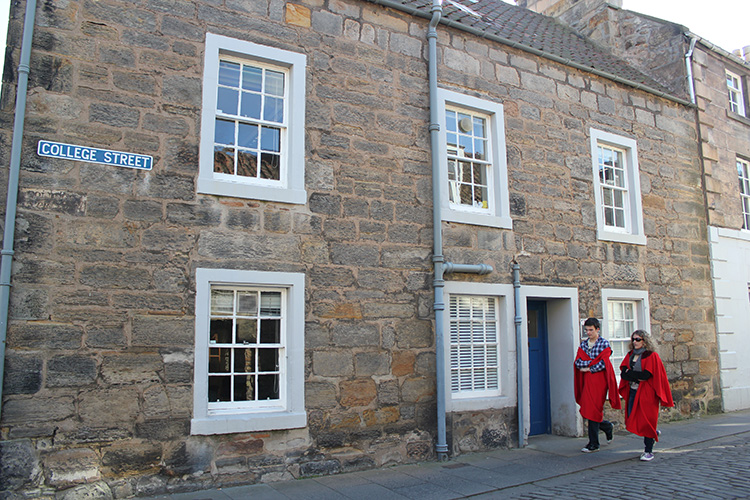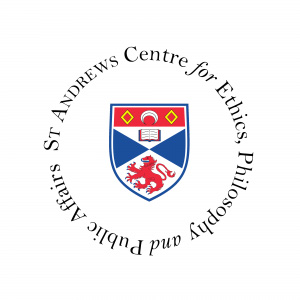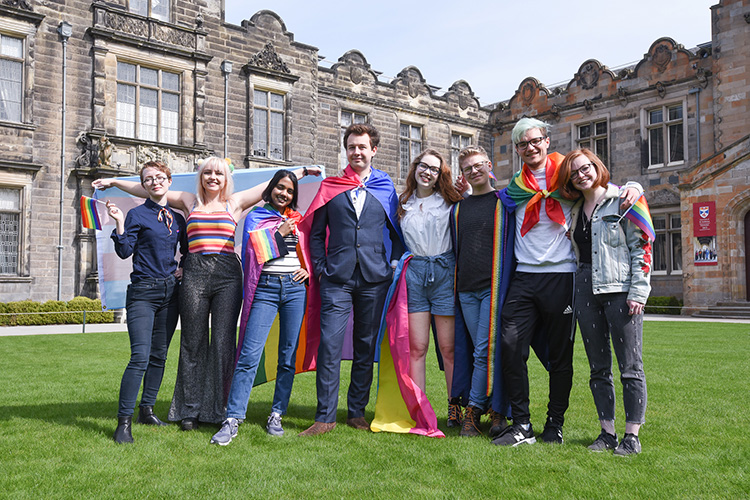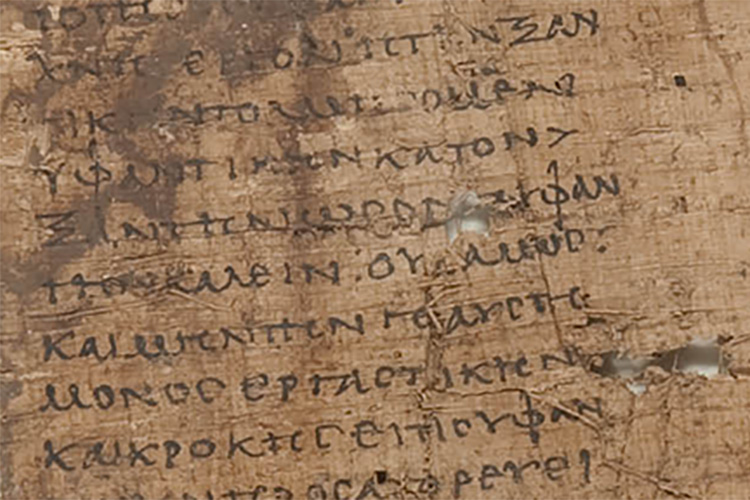Centres, institutes and groups
At the University of St Andrews, much of the philosophical activity is focused on the three research centres and institutes. They serve to enhance the research of academic staff and strengthen the overall research community. In addition, they further the education of PhD, MPhil, and MLitt students, and they engage with other departments and the public.
Arché
Arché was founded in 1998. Its mission is to conduct and foster collaborative research on fundamental issues in metaphysics, epistemology and the philosophies of logic, language, mathematics and mind. It provides a dedicated training environment for postdoctoral and postgraduate researchers.
With hundreds of members around the world, the philosophers affiliated with the Arché centre are responsible for shaping many of the most important discussions in contemporary philosophy.
Franz Berto is the Director of Arché. The centre hosts visits from several Professorial Fellows and currently has five research groups:
- Conceptual Engineering
- Epistemology: Current Themes
- Medieval Logic Research Group
- Metaphysics: Identity, Existence and Structure
- Language and Mind
Visit the Arché website.

Centre for Ethics, Philosophy and Public Affairs
The Centre for Ethics, Philosophy and Public Affairs (CEPPA)is a research centre that promotes exploration into important ethical issues arising in public life. Its field of interest comprises ethics, social and political philosophy, and the philosophical dimensions of public affairs. CEPPA houses research projects, outreach projects, seminars, conferences, academic visits, fellowships, publishing, and public discussion on a variety of topics.
The events at CEPPA are open to postgraduate students as well as staff. We run a variety of recurring events, such as:
- Moral Philosophy Reading Group (MPRG): a weekly in-person discussion group on a chapter or article suggested by one of the participants, held 2.30-3.30pm on Thursdays in Edgecliffe G03.
- CEPPA Seminar: an (almost) weekly seminar with visiting speakers, held 4-5.30pm on Thursdays in Edgecliffe G03 or online (so right after the MPRG).
- Climate Ethics/PhiCliSci Seminar: a new seminar with speakers and commentators on the topic of Climate Ethics/Philosophy of Climate Science, held once a month in-person at the usual CEPPA seminar time.
- Cover-to-Cover-Reading Group: we choose one book each semester to read as a group.
- CEPPA Film Club: a monthly screening and discussion of a film.
If you would like to be on the mailing list for CEPPA, or have any questions, please email ceppadirector@st-andrews.ac.uk or visit the CEPPA website.

St Andrews Institute for Gender Studies
The St Andrews Institute for Gender Studies (StAIGS) was founded in 2018. StAIGS is housed within the School of Philosophical, Anthropological, and Film Studies and it is a deeply interdisciplinary research institute with more than 130 academic staff members from more than 20 different disciplines within the University of St Andrews. StAIGS is strongly committed to an intersectional analysis of the phenomena it examines, understanding that gender, class, race, ethnicity, sexuality, power, and inequality are inextricably connected.
StAIGS has three co-directors, one from each department within the school. The current directors are Dr Jade Fletcher (Philosophy), Dr Ana P Gutierrez Garza (Social Anthropology), and Dr Isabel Seguí (Film Studies). In collaboration with the Graduate School for Interdisciplinary Studies, StAIGS' three co-directors also run the MLitt in Gender Studies programme. StAIGS regularly hosts and supports interdisciplinary workshops, conferences, and public events, as well as hosting the annual St Andrews Institute for Gender Studies Lecture each spring.
Visit the StAIGS website.

Ancient Philosophy
St Andrews has a strong and diverse ancient philosophy community with equal scholarly resources in Classics and Philosophy. It inherits a distinguished tradition, having been the home of the great scholars Lewis Campbell, John Burnet, A. E. Taylor, Ian Kidd, and Sarah Broadie, which it continues to carry forward.
Faculty and postgraduates from both Classics and Philosophy collaborate on workshops, research projects, conferences, and continue to meet at our joint Greek Reading Group which has been running for over 20 years.
